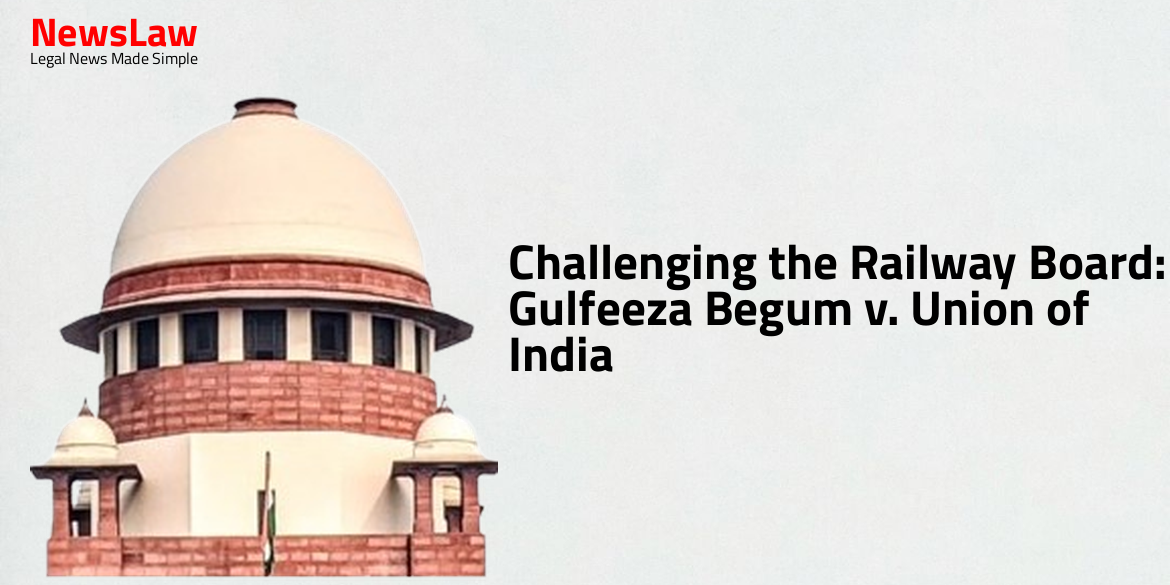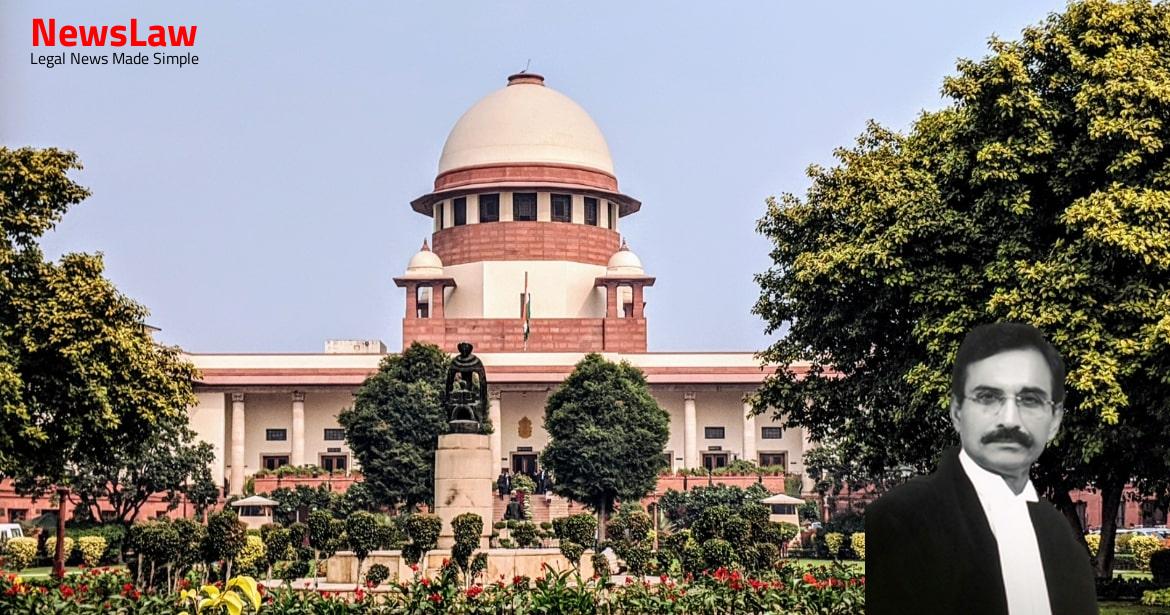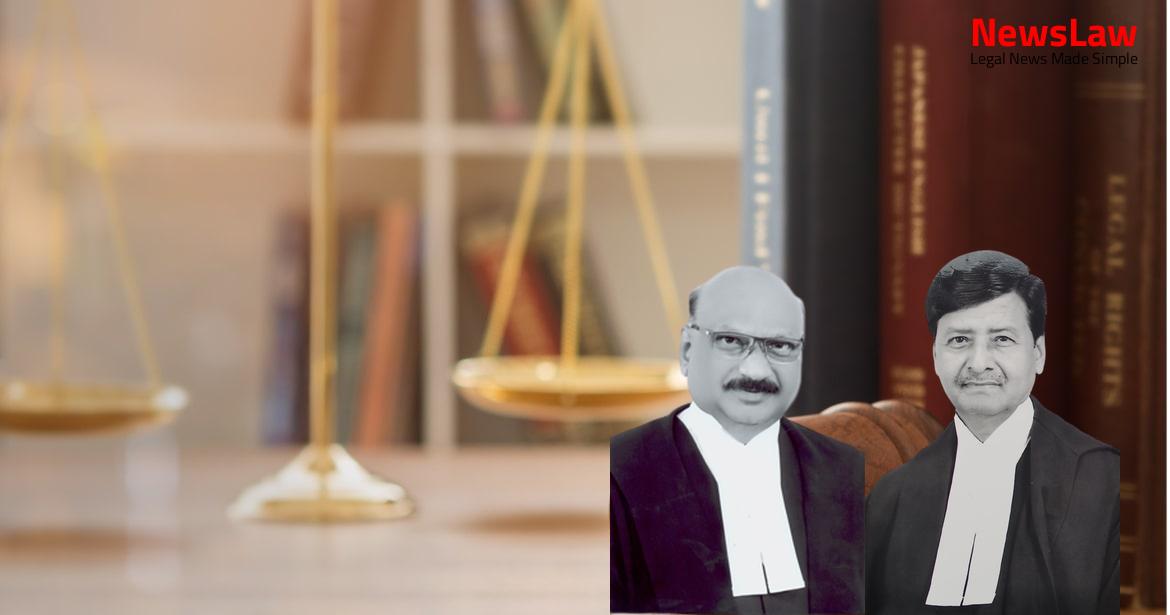In a significant legal showdown, the Delhi High Court has ruled on the case of Gulfeeza Begum v. Union of India, upholding the controversial 2017 Railway Policy. This judgment sets a crucial precedent in the realm of administrative law and policy challenges, demonstrating the judiciary’s role in interpreting and enforcing government regulations. Stay informed about this landmark decision and its implications for future legal disputes.
Facts
- Petitioners running various MPS at different railway stations under a Master License Agreement with Northern Railway.
- Tenure initially set for five years from conversion of stalls/trolleys to MPS till 21.12.2022, extended to 27.02.2023 due to Covid-19 lockdown.
- Petitioners forced to convert stalls/trolleys to MPS in 2017 under Commercial Circular No 61 of 2017.
- Impugning Master License Agreements and extension letters dated 14.12.2022 in W.P.(C) 2501/2023.
- Directed to vacate MPS by 27.02.2023.
- Master License Agreements executed between petitioners and Northern Railway in 2020 and 2021.
- Issues raised against Clause 5 and Clause 11 of the 2017 Policy framed by the Railway Board.
Arguments
- The petitioners are seeking renewal and extension of their licenses in accordance with a Supreme Court judgment.
- They argue that the refusal to renew licenses for miscellaneous/multipurpose stalls/trolleys is arbitrary and violates their fundamental rights under Article 21 of the Constitution.
- The petitioners contend that the 2017 Policy, specifically Clause 5, infringes upon their rights under Articles 14, 19(1)(g), and 21 as it eliminates the right to license renewal.
- They claim that they were coerced into converting their stalls to MPS units under unequal bargaining power.
- The petitioners believe they have a legitimate expectation to have their licenses renewed for future generations and that they were misled about renewal possibilities under the new policy.
- They argue that the 68-day contract extension provided due to Covid-19 is arbitrary compared to extensions granted to other MPS units.
- The petitioners assert that the 2017 Policy striking a balance between livelihood and equal opportunities does not apply to their specific situation as it precludes license renewal.
- They challenge Clause 11 of the 2017 Policy, claiming it unfairly extends to existing stall/trolley owners.
- The petitioners argue that they cannot be forced to comply with a policy change that was known to include no renewal provisions.
- They contend that the 2017 Policy is legally sound, applicable universally, and non-discriminatory towards them.
- The petitioner cannot claim ignorance as the contract clearly stated its non-renewable nature for a period of five years, which was duly signed and enjoyed by the petitioner.
- The petitioner cannot retroactively seek to be brought under a policy from 2012 or 2017 after completing and benefiting from the contract.
- The High Court rejected the argument that non-renewal of the license contradicted a Supreme Court judgment, as the judgment cited was related to Catering Policy, not the specific policy under which the petitioner’s contract fell.
- The petitioner’s reliance on the South Central Railways case was dismissed as inapplicable to the current case, as it was based on Catering Policy and not the Multipurpose Stall Policy that the petitioner’s contract was based on.
Analysis
- The petitioners challenged Clause 5 and Clause 11 of the 2017 Policy which did not allow for extension or renewal of MPS units after the 5-year tenure, instead requiring participation in a fresh bid.
- The petitioners argued for a vested right to perpetual renewal of their licenses, which was rejected as the 2017 Policy clearly stated non-renewability.
- The doctrine of legitimate expectation was also invoked by the petitioners, but the court held it could not be claimed as a right unless violation of Article 14 was proven.
- The court asserted that the railways’ policy decision to re-tender MPS units was within its executive realm and not for the court to legislate.
- The court highlighted the reservation provisions within the 2017 Policy to ensure marginalized sections have opportunities.
- The court upheld that the petitioners’ licenses were subject to the terms of the 2017 Policy and they had benefited from the same during their tenure.
- Force Majeure clause was implemented for lockdown periods due to Covid-19, extending licenses based on individual contract non-operation periods.
- The court reaffirmed that licenses were revocable at the will of the grantor and that petitioners could not claim indefeasible right of renewal.
- The court held that the challenge to Clause 5 and 11 of the 2017 Policy was unsustainable, based on the express terms of the license agreements.
- Territorial jurisdiction of the court to entertain the writs was determined based on the location of the authority to whom the writs were directed.
- The extract highlights the relevant part of the judgment, which is point 55.
- This specific part of the judgment is being referred to as STA.
- The extract does not provide specific details or content of point 55 in the judgment.
- The Karnataka High Court upheld the 2017 Policy in the case Gulfeeza Begum v. Union of India, rejecting a challenge to it.
- The Court stated that past relaxations given by authorities due to changes in examination patterns do not create a right for future relaxations.
- A writ of Mandamus cannot be used to compel the enactment of new laws or rules by authorities.
- Mandamus is meant for enforcing fundamental rights or statutory rights.
- The Court cannot interfere in intricacies of factual situations when authorities have provided reasons for their decisions.
- Legitimate expectations do not always guarantee relief and can be negated by public interest, policy changes, or other valid reasons.
- Public bodies cannot arbitrarily refuse license renewals without rational justifications.
- Courts have the power to declare laws unconstitutional but reviewing a policy decision is different from mandating the framing of a policy in a specific manner.
- Individual license agreements and the 2017 Policy both contain an arbitration clause.
- Petitioners can invoke the arbitration clause if aggrieved due to Covid-19-related extension insufficiency.
- The arbitration clause can also be used to claim damages.
- Petitioners have the liberty to initiate appropriate proceedings through the arbitration clause.
Decision
- Existing stalls and trolleys have the option to convert into Multi Purpose Stalls (MPS) by paying the quoted License Fee.
- Northern Railway, headquartered in Delhi, is relevant in many cases, so the petitions are deemed maintainable.
- Petitioners have the option to convert their stalls/trolleys to MPS for a 5-year tenure.
- Petitioners opted for conversion to MPS, citing advantages of the 2017 Policy.
- Court grants a 3-month period to petitioners to vacate stalls for transition.
- No new allotments, renewals, or extensions will be done for existing stalls/trolleys; conversion to MPS is allowed as per the policy.
- Letters have been sent by the petitioners seeking conversion of their miscellaneous stalls/trolleys to MPS.
Case Title: PRAVEEN KHATRI & ORS. Vs. UNION OF INDIA & ORS. (2024:DHC:4452)
Case Number: W.P.(C)-16558/2023



